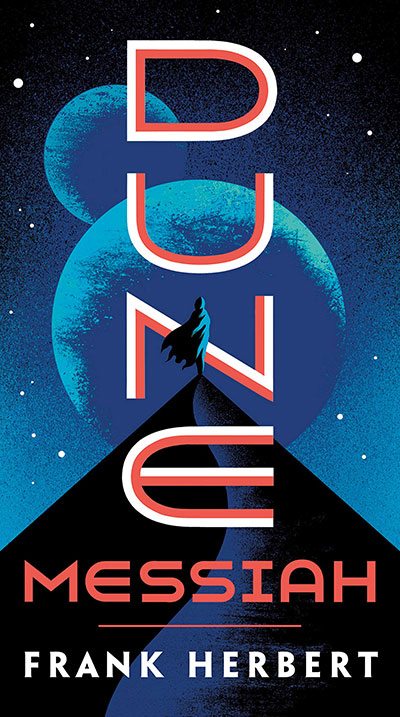Dune Messiah expands upon the vast world of its predecessor, bringing the corners of the known universe under the new Atriedes banner. Paul has become history’s greatest emperor, but leaving sixty-one billion dead behind his twelve-year jihad. His campaign and rule have spread the Fremen religion across worlds, turning Arrakis, or Dune into a great place of pilgrimage as well as sparking a wave of historians that outnumbered any time in humanity’s timeline.
Paul Muad’Dib, unable to prevent the wave of star-crossed violence, finds himself poisoned by the very prescience that allowed him such power. He sees that man’s greatest peril still may lay ahead and may come as a result of the course he put civilization on. The humble Fremen have now grown accustomed to comfort and water, as well as politics and power. This new position they find themselves in begins to challenge their customs. Society is forever shaped by not only Paul, but by his young sister Alia of the Knife, who shares his powers of prescience, as well as the Bene Gesserit training. Born with full awareness and the memories of all past Reverend Mothers, Alia is seen as both saint and oracle among vast swaths of galactic followers, while still considered an abomination by the Bene Gesserit.

As the Atriedes Fremen house come to terms with the full weight of universal rule, plotters and schemers devise their demise. Paul and his sister have old enemies in the Bene Gesserit, as well as in the Spacing Guild. They also have new enemies in the devious Princess Irulan and the mysterious scientific amoralist, the Tleilaxu, and their biological products. The Tleilaxu have resurrected the flesh of Duncan Idaho, Paul’s old teacher, and gifted him to the emperor with cruel intentions. The plotters attack Paul’s credibility and his love for family and friends alike, complicating his maneuvering between the customs of Dune and imperial politics. They exploit Alia’s newfound sexuality, as well as some of the Fremen’s newfound bureaucratic piety.
This story continues on the themes of the first and builds upon them, further exploring how uncontrollable power and religion, or ideology, can become, how civilization is a machine that cannot effectively be centralized by one rule, how life itself should be appreciated above all, and how many things in a complicated world cannot be solved, no matter the power wielded.
This book can act as a perfect conclusion to Muad’Dib’s story.

